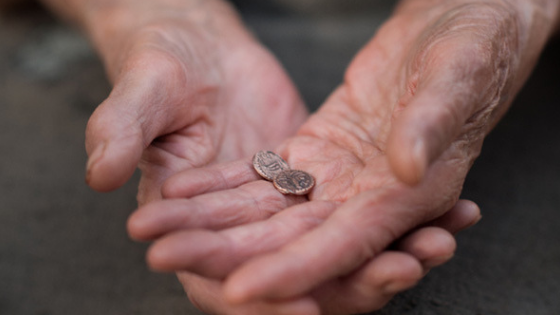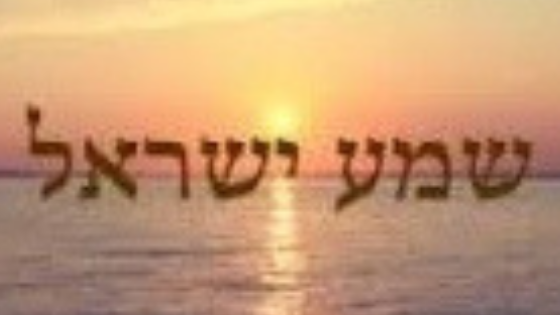The Sunday Liturgy Commentary
The 28th Sunday of Ordinary Time – 14th October 2018
Lectionary readings: Wis 7:7-11; Ps.90:12-17; Heb. 4:12-13; Mark 10:17-30
Theme: Obey the word of God and share life with others; specially the marginalized.
Download
 The word of God is permanent and eternal while gold, silver and our other possessions are transitory. In Marks 10: 17-30, God is looking at the young man with deep love and affection which was very enticing, calling him to a deeper conversion to follow him totally with whole heart. As in the Book of Exodus, Moshe is instructing the people to follow the Word of God and His commandments and not to make gods of silver or gold and the children of Israel hearken to Moshe. Hebrews 4:12-13 is one of the great biblical texts on the power of God’s Word. The author has been warning the Hebrew church of the danger of cultural Christianity. It is clearly told that “Because God’s Word is powerful to expose our sin and God Himself sees everything, we must be diligent to have our hearts right before Him.” Many early commentators interpreted “the word” here as referring to Jesus Christ whom John (1:1) calls “the Word.” Granted, the author begins Hebrews by stating, “God, after He spoke long ago to the fathers in the prophets in many portions and in many ways, in these last days has spoken to us in His Son: (1:1-2).
The word of God is permanent and eternal while gold, silver and our other possessions are transitory. In Marks 10: 17-30, God is looking at the young man with deep love and affection which was very enticing, calling him to a deeper conversion to follow him totally with whole heart. As in the Book of Exodus, Moshe is instructing the people to follow the Word of God and His commandments and not to make gods of silver or gold and the children of Israel hearken to Moshe. Hebrews 4:12-13 is one of the great biblical texts on the power of God’s Word. The author has been warning the Hebrew church of the danger of cultural Christianity. It is clearly told that “Because God’s Word is powerful to expose our sin and God Himself sees everything, we must be diligent to have our hearts right before Him.” Many early commentators interpreted “the word” here as referring to Jesus Christ whom John (1:1) calls “the Word.” Granted, the author begins Hebrews by stating, “God, after He spoke long ago to the fathers in the prophets in many portions and in many ways, in these last days has spoken to us in His Son: (1:1-2).
The word of God is permanent and eternal. In Psalm 90:12-17, it is clearly said “Teach us to number our days, that we may gain a heart of wisdom.” It is also said that more than silver or gold and any priceless gem, I prayed to God and the spirit of wisdom came to me. More than wealth and beauty I chose to have her (Wisdom).
“One ran to him, knelt before him” (v.17b). We think of this man as the Rich Young Ruler, but Mark identifies him only as a man who had many possessions and mentions his possessions only at the conclusion of this encounter (v.22). Mathew says that he is young (19:20), and Luke identifies him as a ruler (18:18).
Exodus 20:12-16 and also Deuteronomy 5:16-20 are repeated in St. Marks 10:17-30. All these commandments, one through four, have to do with our relationship to God. After that, it seems to have to do with human relationship. “One thing you lack, Go, sell whatever you have, and give to the poor, and you will have treasure in heaven; and come, follow me”. This is a shocking call to discipleship – especially shocking in a culture that assumed that riches constituted an endorsement by God of the rich person’s life. This man has probably gone through his life believing that he has tried to please God and that his riches demonstrate that God is pleased with him. To covet material possessions is to invest them with great importance – to let them fill our hearts – to allow them to fill the God-space in our lives. In a sense, a violation of the tenth commandment is also a violation of the first and second commandments – making a god of material possessions.
For Reflection and Discussion: 1. Have we experienced pain when God demands detachments in our day to day lives from power, position, money and fame or comfort? 2. What place do we have for the poor in our lives? 3. Do we give importance to the word of God, trust in God and obey his words rather than worrying about different things that the culture demands?
Bibliography: 1) Holy Bible, New International Version®, NIV® Copyright ©1973, 1978, 1984, 2011 by Biblica, Inc. (2) Jewish Annotated New Testament by Amy‐Jill Levine and Marc ZviBrettler, New York: Oxford University Press, 2011 (3) The Five Book of Moses by Everett Fox, Schocken Books, New York (4) Deuteronomy, Chapter 5:16-20 (5) https://www.sermonwriter.com/biblical-commentary/mark-1017-31/
This week’s teaching commentary was prepared by
Dr. Joan Chunkapura, Ph.D., MMS, TRADA, Kerala, India. Bat Kol alumna, 2006.
Email: joanc.mms@gmail.com
[Copyright © 2018]
……………………………………………………………
PLEASE NOTE: The weekly Gospel commentaries represent the research and creative thought of their authors, and are meant to stimulate deeper thinking about the meaning of the Sunday Scriptures. While they draw upon the study methods and sources employed by the Bat Kol Institute, the views and conclusions expressed in these commentaries are solely those of their authors, and do not necessarily represent the views of Bat Kol. Questions, comments and feedback are always welcome.
………………………………………………………………
Bat Kol Institute for Jewish Studies, Jerusalem
1983-2018
“Christians Studying the Bible within its Jewish milieu, using Jewish Sources.”
Mail to: gill@batkol.info; Website: www.batkol.info



